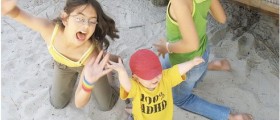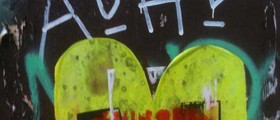
ADHD-Overview
Attention deficit hyperactivity disorder is a chronic condition, a neurobehavioral development disorder. Problems that are associated to ADHD are poor attention span, restlessness and impulsive, hyperactive behavior. It is one of the most studied psychiatric disorders in children. Many children have this disorder, it has been estimated that three to five per cent of children worldwide have it.
Today, scientists believe that the cause of this condition is mainly in the inherited traits of the child. However, environmental factors may play a great role in worsening the child’s behavior. The factors that play the biggest role are heredity (it tends to run in the family, although no one is quite sure why), altered brain function and anatomy (there appears to be less activity in the parts of the brain that control attention and activity with those suffering from ADHD), and environmental toxins (if a child, or the mother while in pregnancy has been exposed to some substances, such as lead, PCB’s, etc. there is an increased risk that the child will get ADHD).
Symptoms
It is vital that parents pay attention to the symptoms so as to, if needed, consult a doctor. The main symptom is inattention, which may manifest itself as the child not being able to listen when someone is speaking to it, avoids and dislikes schoolwork, gets easily distracted, has problems organizing tasks, etc.
Also, the manifestations of hyperactive behavior include: the child has trouble waiting for its turn, talks too much and too fast, fidgets often, interrupts others frequently, runs and climbs when it’s not appropriate, etc.
Homeopathic Remedy
There are a lot of homeopathic remedies that may help when dealing with ADHD. The most important quality of this type of therapy is that it has no known side-effects and that is why many people today are turning to it instead to conventional medicine.
These are some of the remedies for ADHD:
Cornus circinatus. Used for those that refuse to think, work or read. They usually have difficulty concentrating and often do not understand what they are reading.Stramonium. For those who are often violent, and easily terrified. They are very hyperactive and tend to speak extremely fast and incoherent. Tuberculinum aviare. Mostly prescribed for children that are extremely restless, but are rather weak. They have a diminished appetite and that state usually lasts for a while.Lyssinum. Used for children that are acting rabid. They tend to scratch, bite and growl. They easily get angry, but repent immediately, and often act defensive. They sometimes have a history of abuse, and because of that, they feel tormented. Zincum metallicum. Mainly used for children that are fidgety, often twitch, and are prone to rage fits.Belladonna. Used for those that have poor learning ability. They often fear ghosts and look wild when they get angry. Baryta iodatum. For children that are very restless, nervous, have an enormous appetite, and have trouble concentrating.Chamomilla. Prescribed to children that are irritable, restless, often thirsty, hypersensitive to pain, and do not know what they want.Helleborus. Used for those that seem unable to cope with responsibilities, and have difficulty memorizing things.Lachesis. For children that are very restless, hyperactive, agitated, and moody. They have a tendency of developing depression and lack in confidence.
















Your thoughts on this
Loading...